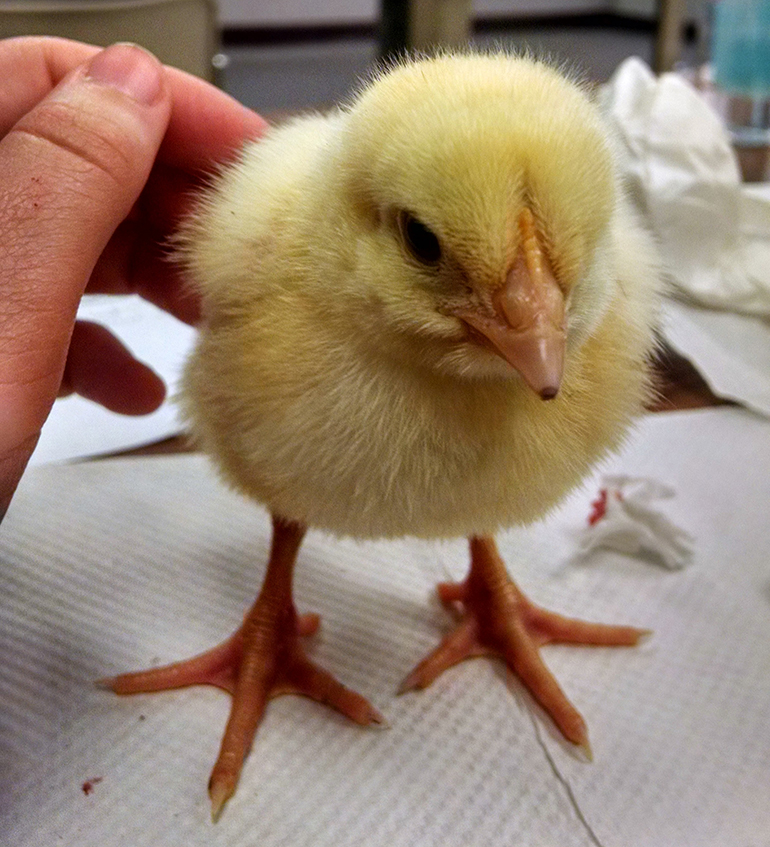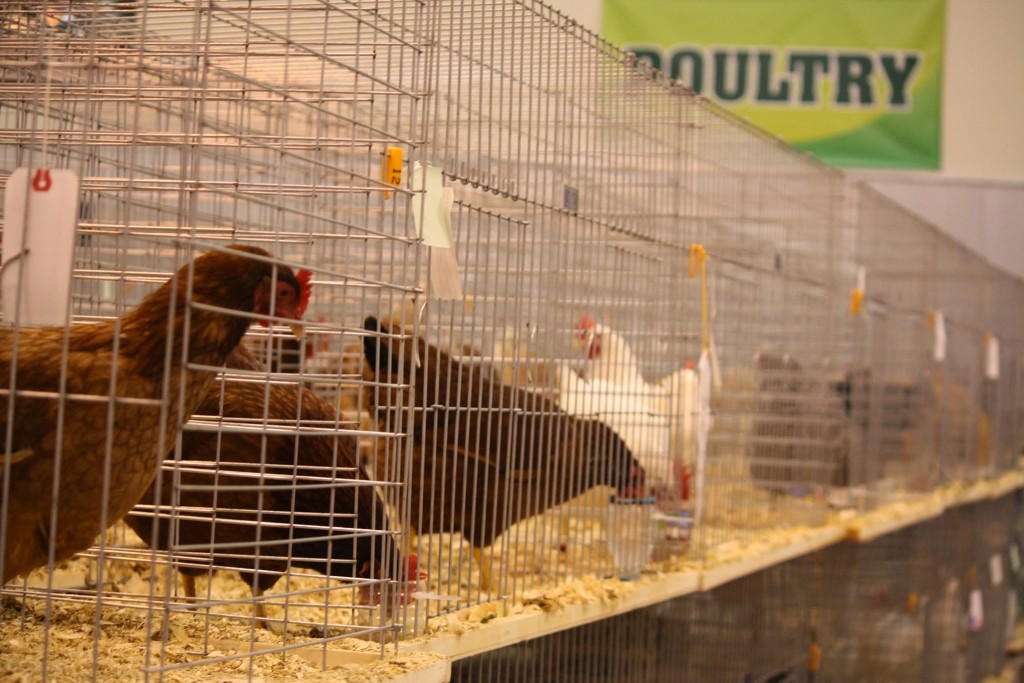I can recall back to elementary school when my teacher brought in a big batch of eggs and an incubator and told us that we were going to hatch chicks. The fact that a tiny egg could produce life baffled me. If these eggs can produce chicks, then why don’t the eggs in the fridge ever pop out tiny, fuzzy chickens?
The answer: science and modern agriculture. The farms that your eggs are coming from are actually completely different than the farms that produce the chickens for your chicken nuggets.
Chickens don’t even need a rooster to start laying eggs. Surprisingly, chickens have tens of thousands of ova in their reproductive system and many of these ova do develop into eggs. Through ovulation, chickens produce an egg a day for a series of days. After their production spurt, the chickens take a period of rest before starting again.

Photo by Topanga McBride
The egg production process begins in the hatchery. This is where the egg-laying chickens (laying hens) will be born. Twenty-one days later, the chicks are housed in a pullet barn, where they will live until they mature into chickens capable of laying eggs. A pullet is simply a young chicken, usually under a year old. The pullets live in the pullet barn for about 19 weeks.
The now-ready hens will move into a laying barn, where the eggs are actually produced. This is a girls-only club. According to the Egg Safety Center, there is never a moment where laying hens are in contact with a male chicken (rooster). That means your breakfast dishes should always be safe from accidental chicks.

Photo by Topanga McBride
When the eggs are collected, they go to processing, where they are washed, inspected, sorted and packed. These are the eggs that end up in your grocery store.
There are some stores out there that offer fertilized eggs. However, they are more expensive, do not last as long, and will be clearly labeled. According to the American Egg Board, “fertile eggs are no more nutritious than nonfertile eggs,” thus, it’s not worth dropping the extra money for them.
So, next time you go to crack an egg, don’t fret; your omelet will be deliciously chick-free.


